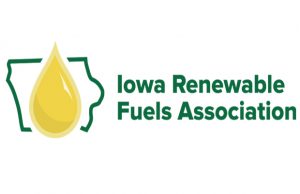 Iowa ethanol production has remained stagnant for the past three years and the Iowa Renewable Fuels Association puts the blame on the blocking of carbon capture and sequestration technology usage in the state.
Iowa ethanol production has remained stagnant for the past three years and the Iowa Renewable Fuels Association puts the blame on the blocking of carbon capture and sequestration technology usage in the state.
Iowa’s ethanol plants produced 4.6 billion gallons of ethanol in 2025, matching its output level from the past two years. Iowa accounts for 28% of total U.S. ethanol production, which hit 16.4 billion gallons in 2025, the fifth straight annual increase.
IRFA Executive Director Monte Shaw says while Iowa production levels have stagnated, national ethanol production increased by 850 million gallons and ethanol plant expansions are happening in states such as Indiana, Illinois, North Dakota, and Nebraska.
“Investment dollars flow to areas with a perceived competitive advantage,” said Shaw. “The states attracting significant investment have one thing in common – the ability to sequester carbon either locally or via pipeline infrastructure. While Iowa remains the largest ethanol-producing state, we are behind in the race to maximize the incentive and market benefits from producing ultra-low carbon ethanol.”
This week, as USDA announced a record corn crop in Iowa, the Iowa Legislature introduced a bill that would ban the use of eminent domain for CO2 pipeline projects and carbon capture, use and sequestration (CCUS) initiatives, which Shaw says would essentially ban CO2 projects in Iowa while neighboring states are moving forward. “Capturing and using or sequestering carbon from Iowa plants would generate $3 billion in federal incentives while helping enhance U.S. oil production, create investment opportunities for new projects in Iowa, and reduce CO2 in the atmosphere. This bill would slam the door on Iowa’s ability to compete, and we urge Iowa House members to oppose it.”
IRFA notes that President Trump has called CCUS central to his American Energy Dominance agenda. In Nebraska, a CO2 pipeline has already attracted a nearly $2 billion investment to make green methanol. CO2 sent to places like North Dakota, Wyoming, and Texas can be sequestered, but also allow enhanced oil recovery from America’s fracking fields.











